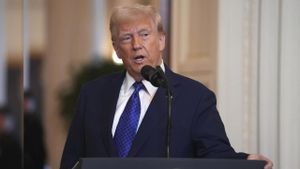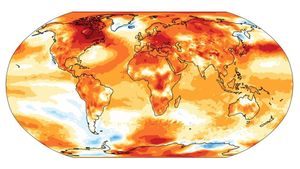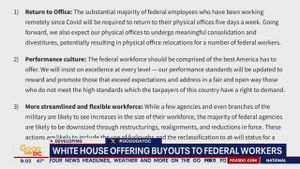PALM BEACH, Fla. -- President Donald Trump announced Sunday the imposition of hefty tariffs on Canada and Mexico, igniting tensions between North America’s top trading partners. On Saturday, Trump signed tariffs of 25% on Canadian goods and 10% on energy products, alongside new tariffs on China. This unexpected move threatens to unravel decades of trade relationships, with potential repercussions extending far beyond the borders of the U.S.
Americans, Trump warned, might experience “some pain” as the consequences of these tariffs set in. "Will there be some pain? Yes, maybe (and maybe not!)," he stated on social media. "But we will make America great again, and it will all be worth the price." The tariffs, justified by Trump as necessary to address illegal immigration and trade deficits, were set to launch Tuesday, plunging many consumers and businesses alike deeping uncertainty.
The reaction from Canada was swift. U.S. Ambassador to Canada, Kirsten Hillman, expressed confusion over the imposition of these tariffs, stating, "Canadians are perplexed. We view ourselves as your neighbor, your closest friend, your ally." Canada retaliated by imposing 25% tariffs on over $155 billion worth of U.S. goods, including alcohol and fruit. Prime Minister Justin Trudeau urged Canadians to buy domestic products, asserting, “If tariffs are implemented against Canada, we will respond.”
Trump’s assertion during his announcement—that Canada would not exist without its trade surplus with the U.S.—triggered outrage. He asserted, "We don't need anything they have. We have unlimited energy, should make our own cars, and have more lumber than we can ever use." The irony loomed large, as approximately 25% of the oil the U.S. consumes daily hails from Canada.
Triggering concern among economic analysts, the move sparked discussions about inflation. Trump's critics pointed out the tariffs might not elicit the desired change. Larry Summers, former treasury secretary, characterized the tariffs as “a self-inflicted wound to the American economy.” He claimed this could inflate consumer prices, stating, "Inflation might go up over the next nine months by as much as 1%." Any price increase could deter efforts to stabilize the economy.
Mexico was quick to stand alongside Canada. President Claudia Sheinbaum indicated her country would launch its own retaliatory measures, including tariffs and strategies to shield Mexican interests. The Mexican government plans to enact 'Plan B,' which was developed as preparation for Trump’s anticipated actions.
Sheinbaum responded pointedly to accusations from Washington, asserting, "If such alliances exist, they can be found in U.S. gun shops, which supply high-powered weapons to these criminal organizations." Meanwhile, Trudeau and Sheinbaum vowed to protect their mutual economic interests and strengthen bilateral relations, signaling toward more cooperative security measures as well.
According to analysts, these new tariffs could have dire and unintended effects on the American economy. The Yale Budget Lab estimated the continuation of these tariffs could result in losses close to $1,245 for the average U.S. household annually, turning what many see as America’s first real trade war since the turn of the 21st century.
Outside the U.S., international perspectives on the situation have also come to light. The Chinese government announced intentions to safeguard its economic interests through measures ranging from retaliatory tariffs to legal actions with the World Trade Organization.
With the ramifications still unknown, analysts are weighing the potential fallout of these tariffs alongside the forthcoming mid-term elections. The question looms: how will American consumers respond to increases resulting from tariffs, and could this become Trump's Achilles' heel?
For now, the U.S. economy stands at the edge of a precipice. Whether these tariffs bolster Trump’s position and promise to reduce foreign trade advantages will remain to be seen as the clock ticks down to their implementation.



